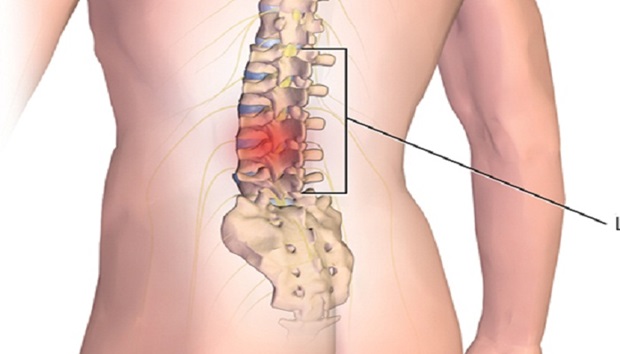How to Treat Slipped Disc ALL NATURALLY!
Before we start with this article, I would like to ask you a simple question – do you know what’s a slipped disc? Well, a slipped disc, also known as a prolapsed or herniated disc, usually occurs when one of the discs that sit between the bones of the spine (the vertebrae) is damaged and presses on the nerves. This can cause back pain and neck pain, as well as symptoms such as numbness, a tingling sensation, or weakness in other areas of the body. You should know that people who are 35 to 45 years old are more likely to have a slipped disk and other spine problems. This is mostly because your disks begin to lose some of their protective water content as you age. As a result, they can slip more easily out of place, and slipped discs are more common in men than women.
What are the most common symptoms of slipped disc?
Slipped disc in the neck
- neck pain during movement
- numbness or a tingling sensation in the neck, shoulder, arm or hand
- weakness in certain muscles, which limits your range of movement
Slipped disc in the lower back
- back pain during movement
- numbness or a tingling sensation in the back, buttocks, genitals, legs or feet
Other nerves
- muscle paralysis
- muscle spasms – where your muscles contract suddenly and painfully
Cauda equina syndrome
- lower back pain
- numbness in your groin
- paralysis of one or both legs
- rectal pain
- loss of bowel control
- loss of bladder control
- pain in the inside of your thighs
What’s a slipped disc and most common causes?
First, you should know that a slipped disk occurs when the outer ring becomes weak or torn and allows the inner portion to slip out. This can happen with age. Certain motions may also cause a slipped disk. A disk can slip out of place while you are twisting or turning to lift an object. Lifting a very large, heavy object can place great strain on the lower back, resulting in a slipped disk. If you have a very physically demanding job that requires a lot of lifting, you may be at increased risk for slipped disks. Overweight individuals are also at increased risk for a slipped disk because their disks must support the additional weight. Weak muscles and a sedentary lifestyle may also contribute to development of a slipped disk.
How to treat slipped disc in all-natural way?
First, you should know that the treatment typically depends on the level of discomfort you are experiencing and how far the disk has slipped out of place. Well, most patients can relieve slipped disk pain using an exercise program that stretches and strengthens the back and surrounding muscles. A physical therapist may recommend exercises that can strengthen your back while reducing your pain. Taking over-the-counter pain relievers and avoiding heavy lifting and painful positions can also help.
And you should definitely try this homemade remedy – take 1 potato, cut it in slices and apply them on the affected area. Or, you can take 10 cloves of garlic, crush them well and cook them for 10 minutes. After that, remove them from heat, and make a hot compress out of it. Leave the compress on for at least 3 hours.
And make sure you follow these simple tips and tricks, to prevent slipped disc: you should use safe lifting techniques: Bend and lift from your knees, not your waist, maintain a healthy weight, do not remain seated for long periods, get up and stretch periodically, do exercises to strengthen the muscles in your back, legs, and abdomen. We really hope you find this article helpful and don’t forget to share it with your friends and family. Thank You.
Comments
comments



